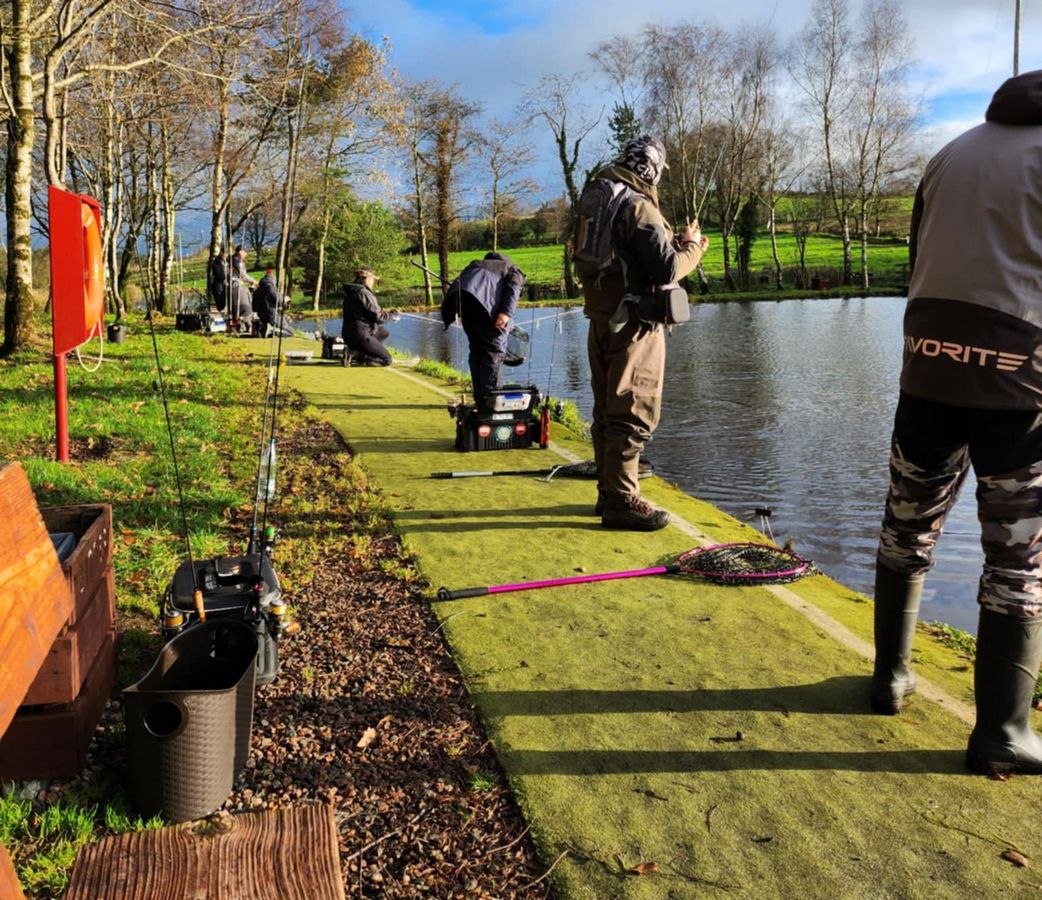Fishing and Team Building: The Perfect Combination for Building Stronger Teams - (Team Building Coach avilable on request)
In a world driven by fast-paced office environments, endless virtual meetings, and digital communication, there is something inherently grounding about fishing. On the surface, it may seem like a solitary or leisurely activity, but when paired with team building, fishing can become a powerful tool for fostering collaboration, patience, and communication - key ingredients for creating stronger, more effective teams.
Nature as the Great Equalizer
One of the most valuable aspects of team-building activities is the removal of hierarchy, allowing team members to interact outside of traditional office roles. Fishing, as an activity in nature, serves as a great equalizer. Whether it’s the CEO or a new hire, everyone shares the same experience—casting a line, waiting for a bite, and facing the unpredictable elements. In the wild, there’s no office or boardroom to fall back on. Instead, there’s an unspoken camaraderie in the shared goal of catching fish, creating natural opportunities for conversation, collaboration, and mutual respect.
Fostering Patience and Resilience
Team building is as much about fostering emotional intelligence as it is about developing specific skills. Fishing requires patience—sometimes you’ll wait hours without a bite. This mirrors the frustrations teams often face in the workplace, where quick results aren’t always possible. The slow, methodical pace of fishing teaches resilience. Just as casting the line over and over again is necessary for a successful catch, persistence is vital when tackling long-term projects or overcoming workplace challenges.
Problem-Solving and Strategy in a Low-Stress Environment
Fishing is not just about throwing a hook in the water. It involves reading the environment, choosing the right bait, and using the appropriate technique based on the conditions. This need for strategy mirrors business operations. Working together on these decisions in a relaxed, natural setting allows team members to bond and solve problems in a way that feels more organic. The low-stress environment of fishing helps teams practice problem-solving without the pressure of deadlines or office dynamics, making them more prepared for future workplace challenges.
Building Trust and Communication
A successful fishing trip often requires strong communication. In a team-building context, this means learning to listen, share knowledge, and rely on one another. Whether guiding a teammate on how to cast a line or discussing strategies for catching certain types of fish, these interactions foster a sense of trust and mutual reliance. Fishing encourages teams to support one another, reinforcing the idea that success—whether on the water or in the office—comes from working together.
Unplugging and Reconnecting
Finally, fishing provides a rare opportunity to unplug. In today's hyper-connected world, being constantly online can make it difficult to form meaningful connections. A team-building fishing trip forces people to leave behind their phones, computers, and work emails, allowing them to fully engage with one another in the present moment. This time away from screens fosters real human interaction, helping to break down barriers and build stronger personal relationships within teams.
In the end, team building is about creating an environment where collaboration thrives. Fishing, with its blend of patience, strategy, communication, and nature, offers an ideal setting for achieving just that. By casting their lines into the unknown together, teams strengthen bonds, learn valuable lessons, and ultimately emerge better prepared for whatever challenges come their way—both on the water and in the workplace.
Customised Lunch & Dining Options
For group bookings we can offer lunch and dining arrangements tailored to your group's preferences. From light refreshments to hearty meals, we’ll make sure your guests are well-fed and energized for the day. Please ask for further details with your booking enquiry.


